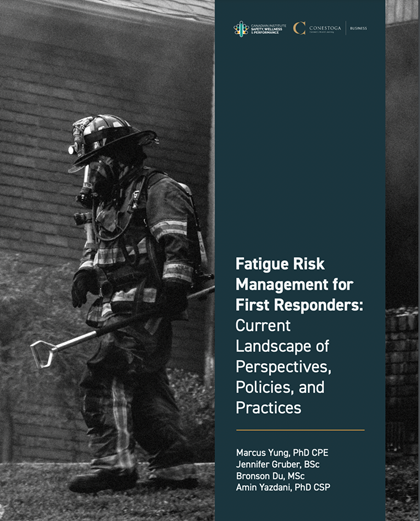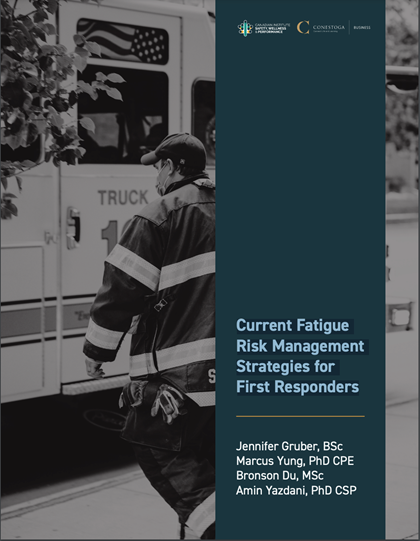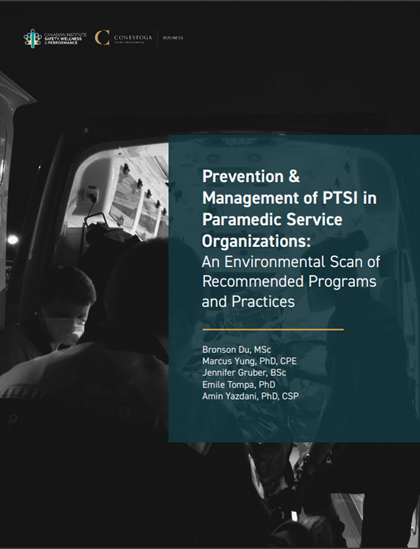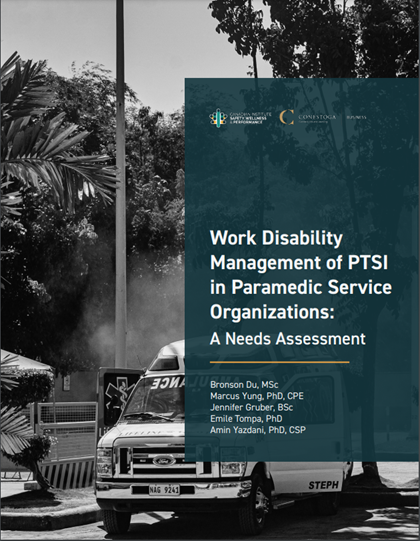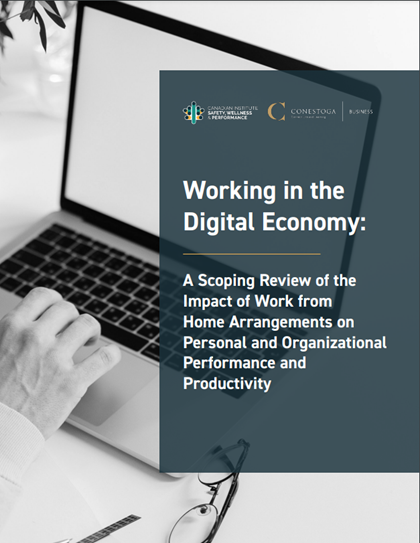Archive
-
2025
-
2024
-
2023
-
2022
-
2021
-
2020
-
2019
-
2018
-
2016
-
2013
Category
Fatigue Risk Management for First Responders: Current Landscape of Perspectives, Policies, and Practices
Our objective is to develop a consensus-based, evidence-informed national Standard on First Responder Workplace Fatigue Risk Management that will provide an approach to systematically preventing and managing workplace fatigue by addressing it in a strategic, coordinated approach, and as part of a broad organizational management framework.
Current Fatigue Risk Management Strategies for First Responders
Our objective is to develop a consensus-based, evidence-informed national Standard on First Responder Workplace Fatigue Risk Management that will provide an approach to systematically prevent and manage workplace fatigue by addressing it in a strategic, coordinated approach, and as part of a broad organizational management framework.
Prevention & Management of PTSI in Paramedic Service Organizations: An Environmental Scan of Recommended Programs and Practices
The objective of this environmental scan is to synthesize existing guidelines and recommended practices to prevent and manage
work disability related to post-traumatic stress injuries (PTSI) in paramedic service organizations. Findings will contribute to
informing the new Canadian Work Disability Management System Standard for Paramedics with a focus on the prevention and
management of PTSI and mental illnesses.
Work Disability Management of PTSI in Paramedic Service Organizations: A Needs Assessment
The objective of this needs assessment was to determine gaps and challenges between the current and desired conditions for addressing post-traumatic stress injuries (PTSI) in paramedic service organizations.
Working in the Digital Economy: A Scoping Review of the Impact from Home Arrangements on Personal and Organizational Performance and Productivity
WFH arrangements have risen substantially in an extremely short amount of time. WFH has been associated with several physical and mental health outcomes, however these health and safety issues often receive little resources and attention from a business and managerial perspective compared to organizational and worker performance and productivity. Therefore, aligning WFH practices and strategies with business goals of organizations may help catalyze awareness from decision makers and serve to effectively implement WFH policies.


